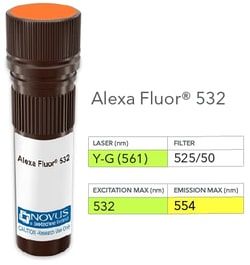Adiponectin/Acrp30 Antibody (ADPN/1370) - Azide and BSA Free, Novus Biologicals™
Manufacturer: Fischer Scientific
Select a Size
| Pack Size | SKU | Availability | Price |
|---|---|---|---|
| Each of 1 | NB254319100-Each-of-1 | In Stock | ₹ 57,494.00 |
NB254319100 - Each of 1
In Stock
Quantity
1
Base Price: ₹ 57,494.00
GST (18%): ₹ 10,348.92
Total Price: ₹ 67,842.92
Antigen
Adiponectin/Acrp30
Classification
Monoclonal
Concentration
1 mg/mL
Dilution
Flow Cytometry 0.5 - 1 ug/million cells, ELISA 1:100 - 1:2000, Immunocytochemistry/Immunofluorescence 1 - 2 ug/ml, Immunohistochemistry-Paraffin 1 - 2 ug/ml, CyTOF-ready
Gene Alias
ACDC, ACRP30ADPN, adipocyte, C1Q and collagen domain containing, adiponectin, adiponectin, C1Q and collagen domain containing, AdipoQ, ADIPQTL1, apM-1, APM1APM-1, C1q and collagen domain-containing protein, GBP28apM1, Gelatin-binding protein
Host Species
Mouse
Molecular Weight of Antigen
28 kDa
Quantity
100 μg
Research Discipline
Diabetes Research, Lipid and Metabolism
Gene ID (Entrez)
9370
Target Species
Human
Form
Purified
Applications
Flow Cytometry, ELISA, Immunocytochemistry, Immunofluorescence, Immunohistochemistry (Paraffin), CyTOF
Clone
ADPN/1370
Conjugate
Unconjugated
Formulation
PBS with No Preservative
Gene Symbols
ADIPOQ
Immunogen
Recombinant human Adiponectin protein fragment
Purification Method
Protein A or G purified
Regulatory Status
RUO
Primary or Secondary
Primary
Test Specificity
This MAb reacts with adiponectin, an adipocytokine. Adipocytokines are hormones produced in adipose tissue. Adiponectin is abundantly present in plasma and has insulin like effect on glucose levels in the blood. Plasma adiponectin levels are low in insulin resistant patients who are obese, have diabetes mellitus type 2 or HIV-lipodystrophy. In women adiponectin levels tend to be higher than in men, which may be due to androgens suppressing adiponectin levels. Furthermore adiponectin and leptin are both indicated in regulating body weight through direct action on the hypothalamus, influencing appetite. Obese people have low adiponectin levels while levels in anorexia patients are high. Adiponectin acts as ligand for various receptors, two of which have been identified, one probably involved in carbohydrate assimilation, the other in tuning the rate of metabolism.
Content And Storage
Store at -20 to -80C. Avoid freeze-thaw cycles.
Isotype
IgG2b
Description
- Adiponectin/Acrp30 Monoclonal specifically detects Adiponectin/Acrp30 in Human samples
- It is validated for Western Blot, Immunohistochemistry, Immunohistochemistry-Paraffin, Protein Array, CyTOF-ready.



